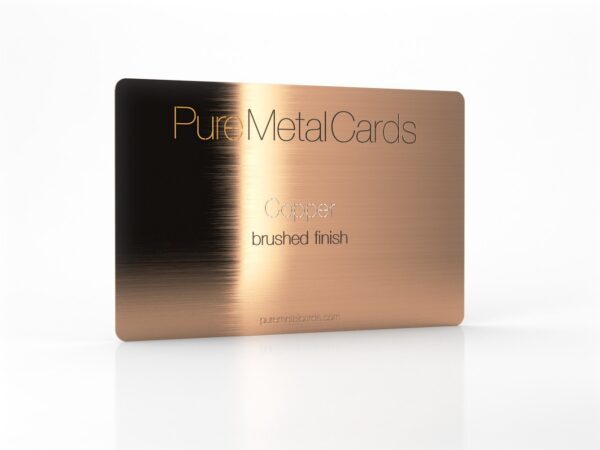It is never easy to talk about your weaknesses in an interview. Honestly, many of us get nervous when asked about our weaknesses.
But one thing you need to know is that it is not the end of the world. All interviewers want is to see that you know yourself and are working on your flaws. They are not expecting any perfection. Saying “I have no weaknesses” usually sounds fake anyway.
The smart way is simple. Pick one small weakness. Then show what you’re doing to get better. That’s it. It makes you look honest and confident.
In this blog, we’ll show you easy ways to talk about weaknesses. We’ll give real examples you can use. After reading this blog, you won’t feel nervous anymore. You will have a better understanding of how to answer this question with confidence. And guess the best Part? You can turn your weakness into a strength in front of the interviewer.
Why They Ask About Weaknesses
So, when the interviewer asks about the weaknesses, you are scared, right? Relax. It’s not to trick you.
They just want to see three things:
- Do you know yourself?
- Are you honest?
- Are you trying to get better?
That’s it, there is nothing more.
For example, you can say:
“I get confused when speaking to a large group of people.” But I try to practice in small meetings every week.”
See? It’s simple. You admit the weakness. Then you show you are trying to improve.
Here’s a small table to make it easy:
| Good Answer | Bad Answer | Why Good Works |
| I get nervous when I speak to a large group, but I practice doing this every week. | I have no weaknesses at all. | This shows efforts and honesty. |
| I sometimes rush tasks, but I make to-do lists now. | I can’t work in teams. | Shows you are learning. |
The main idea is not to try to sound perfect. Just be honest and show you are learning.
How to Pick Your Weakness
Picking a weakness can feel tricky. But it’s really not. Keep it real and small.
Ask Yourself:
- Is this something I can work on?
- Will it affect my job a lot?
- Can I show that I’m trying to get better?
Some easy examples:
- I get nervous speaking in front of groups.
- I sometimes rush tasks.
- I take too long to ask for help.
Then, always add what you do to fix it. Like:
I join small meetings to practice speaking.
I make a checklist to avoid rushing.
I try to ask questions early rather than wait.
Weakness Examples
| Weakness | How to Show You Improve |
| Nervous speaking | Practice in small groups |
| Rush tasks | Make a checklist |
| Hesitant to ask for help | Ask questions early |
| Easily distracted | Use a quiet space to focus |
Remember, you don’t have to pick a huge problem. The small things you are working on are perfect.
Tips To Discuss Your Weaknesses in an Interview
When they ask you about your weakness, you don’t need to worry. Stay calm.
Step 1: Say a real weakness
Pick something small. Don’t say “I have none.” It sounds fake.
Step 2: Say how you try to improve
After your weakness, tell them what you do to get better.
Step 3: Keep it short
Just a few sentences and no long stories.
- Examples you can use:
- I get nervous in big meetings. I practice in small groups to feel better.
- I sometimes rush my work. I now make a checklist to stay on track.
- I take time to ask for help. Now I ask questions early instead of waiting.
Weakness Answer
| Weakness | How to Improve | Example |
| Nervous in meetings | Practice in small groups | I practice in small groups to feel better. |
| Rush work | Make checklist | I now make a checklist to stay on track. |
| Hesitant to ask for help | Ask early | I ask questions early instead of waiting. |
That’s it. Short and honest shows you want to get better.
Effective Tips to Get Ready For A Job Interview
Making yourself prepared before an interview helps you a lot. It makes you calm and confident.
Here are some simple job interview tips:
- Practice your answers
Think about common questions. Try saying them out loud.
- Pick your weakness
Choose one small weakness and how you are improving it.
- Know the company
Check what the company does. It shows you care.
- Dress neatly
Simple, clean clothes that make you look professional and tidy.
- Prepare your resume and cover letter
Have them ready and neat. This helps you feel ready. You can also use CV writing NZ tips to make it strong.
- Arrive early
Being on time shows respect.
Interview Prep Checklist
| Task | Why It Helps |
| Practice answers | Feel confident |
| Pick weakness | Be ready for tricky questions |
| Know the company | Show interest |
| Dress neatly | Look professional |
| Prepare CV & cover letter | Stay organized |
| Arrive early | Avoid stress |
| Stay calm | Speak clearly |
Following these small mistakes can make all the difference. You will feel ready to impress and relaxed. Remember that cover letter writing is important, and you need to have one.
Common Mistakes to Avoid When Discussing Weaknesses
Discussing your weaknesses may feel like climbing uphill, but don’t worry. Just keep it simple.
Here are some mistakes people make:
Saying “I have no weaknesses” sounds fake. Everyone has something they can improve.
- Choosing a big problem
Don’t say, “I can’t work in a team or I am not always on time.” Choose something small.
- Talking too much
One or two sentences about the weakness. One or two sentences about how you fix it. That’s enough.
- Not showing how you improve
Always say what you do to get better. Otherwise, it seems like you don’t try.
- Being too negative
Focus on what you are doing to fix it, not just the problem.
Mistakes vs Good Way
| Mistake | Good Way |
| I have no weaknesses | Pick a small weakness and show you’re working on it. |
| Big serious weakness | Pick a small weakness you can improve. |
| Talk too much | Keep it short and clear. |
| No improvement | Show the steps you take to get better. |
| Only negative | Focus on positive steps. |
See? It’s easy. Just be honest, simple, and show you want to get better. That’s all interviewers want. Your resume plays an important role in showing your true personality. Just make sure you have the right resume guide to create a remarkable impression.
Frequently Asked Questions
- What if I don’t know my weakness?
Take a few seconds to think. Pick something small that doesn’t stop you from doing the job.
- Can I tell a weakness that’s also a strength?
Yes, but be honest. For example, “I pay close attention to details, so I check my work precisely.”
- How long should my answer be?
Short and clear. One or two sentences about the weakness, and one or two about how you deal with it.
- What sins should I avoid?
Don’t pick big problems like “I can’t work in a team” or “I’m always late.” Pick something small you can fix.
- Can I prepare my answer to my weakness before the interview?
Yes! Practice as many times as you can. It helps you feel calm and confident.
Final Notes
Talking about weaknesses in an interview doesn’t have to be scary. Keep it short, simple, and honest. Pick a small weakness that shows you’re working to improve.
Interviewers just want to see that you know yourself and are willing to grow. You don’t have to be perfect. Just be real and calm. Prepare many examples before the interview. Practice saying them out loud. This makes you feel more confident.










